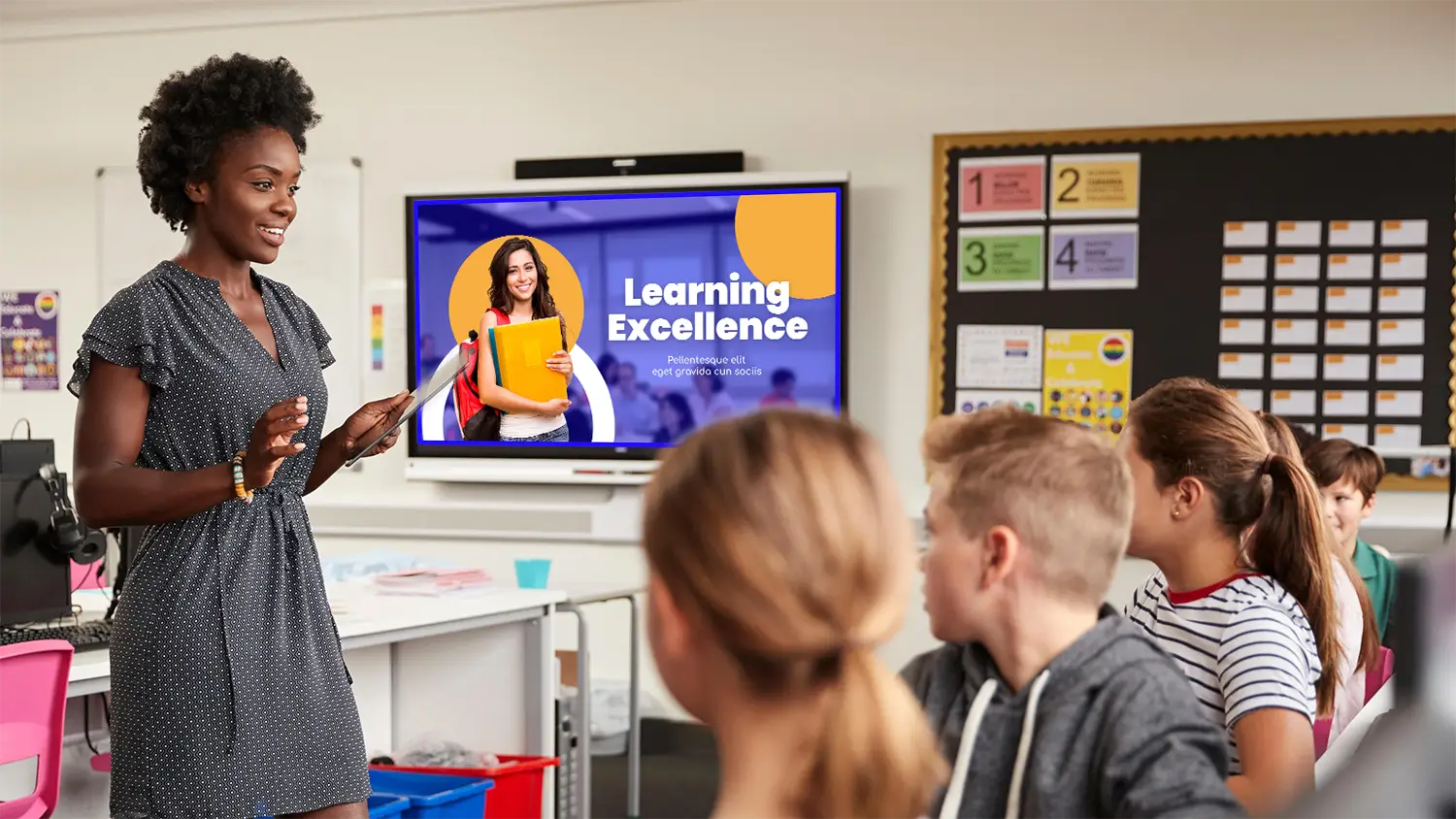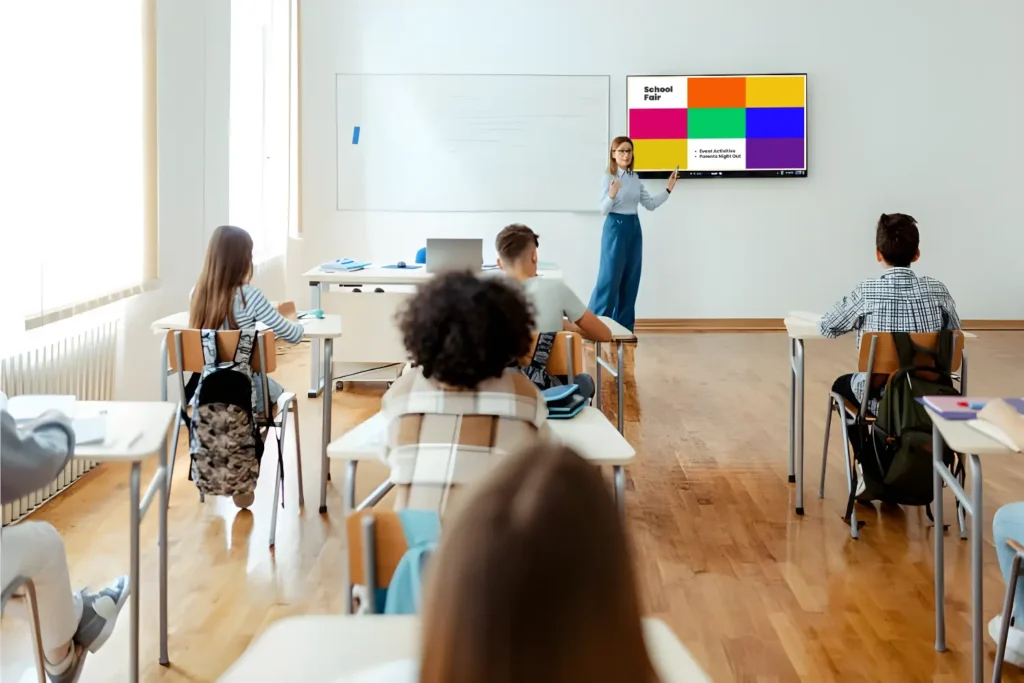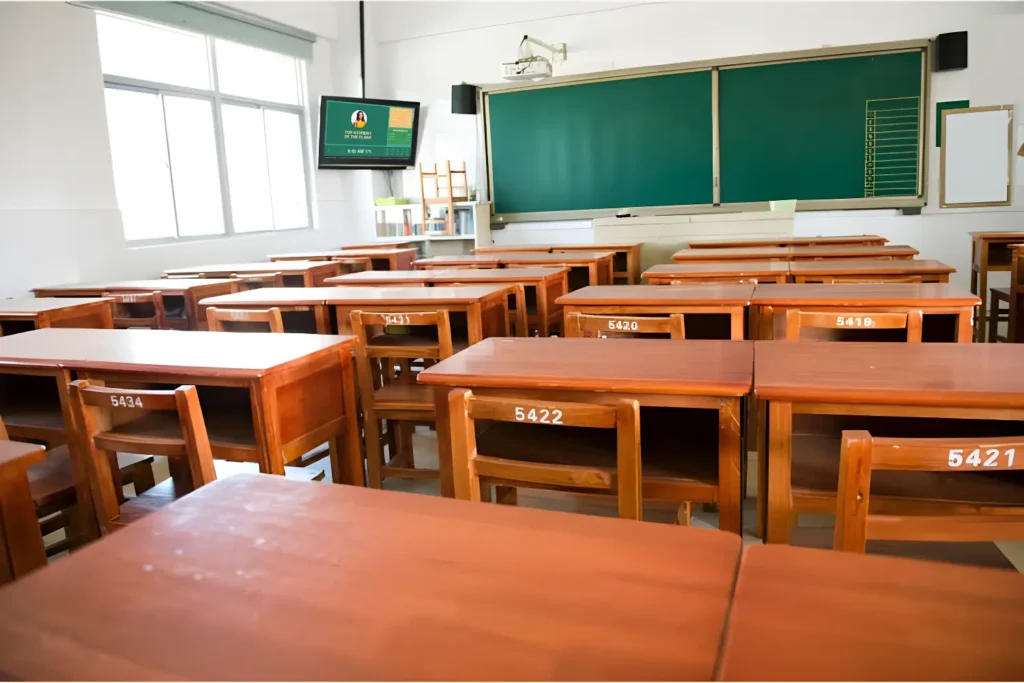Discover New Possibilities! Click Here to Download Your Free eBook Today and Unlock Expert Insights!
In the digital era, technology is transforming education, and digital signage is a powerful tool for revolutionizing classrooms and educational institutions. Digital signage uses interactive displays, real-time updates, and multimedia elements to create engaging learning environments.
These environments are vital for promoting active participation, critical thinking, and knowledge retention among students. By capturing attention, fostering collaboration, and leveraging technology, digital signage enhances the overall educational experience.
In this article, we will explore the importance of creating engaging learning environments in education and how digital signage catalyzes achieving this goal.
The Role of Digital Signage in Education
Digital signage is a versatile tool that can significantly enhance education by transforming traditional learning environments into dynamic and interactive spaces. It enables educators to deliver information in engaging ways, capture students’ attention, and create immersive learning experiences. With digital signage, educational content becomes more visually appealing, interactive, and easily accessible, fostering active participation and improving knowledge retention.
Benefits of Using Digital Signage in Classrooms and Educational Institutions
Digital signage holds immense potential for transforming traditional classrooms into interactive and captivating spaces. By incorporating this technology, educational institutions can enjoy several advantages, including:
- Increased Engagement: Digital signage captures students’ attention through vibrant visuals, multimedia elements, and interactive features, leading to higher engagement levels and a more positive learning experience.
- Enhanced Information Delivery: Digital signage provides a platform for real-time updates, announcements, and important information. It ensures students stay informed about school events, schedules, and news, promoting transparency and effective communication.
- Multimedia Integration: By incorporating multimedia elements such as videos, images, and animations, digital signage reinforces concepts, accommodates different learning styles, and makes learning more interactive and memorable.
- Collaboration and Interaction: Digital signage facilitates collaboration among students through interactive displays and touchscreens, enabling group activities, discussions, and problem-solving exercises.
- Personalized Learning: Digital signage allows for customization and adaptation of content to meet the specific needs of students, subjects, and educational levels. It promotes personalized learning experiences that cater to individual interests and learning preferences.
Applications of Digital Signage in Educational Institutions
Educational institutions can utilize digital signage across various areas to enhance communication, streamline processes, and create visually appealing environments. Some common applications include:
- Campus-wide Announcements and Event Promotion: Digital signage can serve as a centralized platform to broadcast important announcements, campus news, upcoming events, and extracurricular activities. This ensures that students, faculty, and visitors are well-informed and engaged with the campus community.
- Wayfinding and Directory Systems: Navigating large campuses or school buildings can be challenging, especially for newcomers. Digital signage can provide interactive maps, wayfinding instructions, and directory information to help individuals easily locate classrooms, offices, and other facilities.
- Displaying Dynamic Class Schedules and Updates: Digital signage can display real-time class schedules, changes, and updates, eliminating the need for physical bulletin boards or printed schedules. This ensures that students are always aware of the latest information and minimizes confusion.
- Showcasing Student Achievements and Projects: Digital signage can be used to celebrate student accomplishments by displaying their work, such as academic achievements, artwork, or community projects. This not only recognizes student efforts but also inspires others and fosters a positive learning environment.
- Broadcasting Educational Content and News: Digital signage offers an opportunity to deliver educational content, news, and relevant information beyond the confines of the classroom. It can display educational videos, news articles, or even live feeds from educational events, enriching the learning experience and keeping students updated with current affairs.
Best Practices for Implementing Digital Signage in Education
Implementing digital signage in education requires careful planning and adherence to best practices to ensure a successful deployment. Here are key best practices to consider:
- Conducting a needs assessment and goal-setting: Before implementing digital signage, educational institutions should assess their specific needs and goals. This involves understanding the target audience, desired outcomes, and challenges to be addressed. A clear understanding of objectives helps in aligning the digital signage strategy with the institution’s overall vision.
- Choosing the right hardware and software solutions: Selecting suitable hardware and software solutions is crucial for effective digital signage implementation. Factors to consider include display quality, durability, compatibility with existing systems, ease of content management, and scalability. Choosing the right solutions ensures a reliable and sustainable digital signage network.
- Developing a content strategy and content management system: A well-defined content strategy is essential for delivering relevant and engaging information. Educational institutions should create a content plan that aligns with curriculum objectives, student interests, and current events. Implementing a robust content management system enables efficient scheduling, updating, and distribution of content across various displays.
- Measuring the effectiveness of digital signage initiatives: Regularly evaluating the impact of digital signage is essential for continuous improvement. Institutions should establish measurable metrics to assess the effectiveness of the implemented digital signage solutions. This can include tracking engagement rates, content viewership, and student feedback. Data-driven insights facilitate informed decision-making and optimization of content and strategies.
- Seeking feedback and continuous improvement: Encouraging feedback from students, teachers, and staff helps to identify areas for improvement. Educational institutions should establish channels for collecting feedback and suggestions. Regularly reviewing and incorporating feedback ensures that digital signage initiatives evolve to meet the changing needs of the learning environment.
By following these best practices, educational institutions can successfully implement digital signage solutions that effectively engage students, enhance communication, and support the educational objectives of the institution.
Conclusion
As the future unfolds, it is crucial for educational institutions to partner with experienced and innovative digital signage solution providers. S3 Technologies, a leading provider of digital signage solutions for educational institutions, offers cutting-edge technologies, comprehensive support, and tailored solutions to meet the unique needs of education environments. Partnering with S3 Technologies ensures access to top-notch expertise and a commitment to delivering effective and impactful digital signage solutions.
To embark on your digital signage journey and transform your educational institution into an engaging and dynamic learning environment, reach out to S3 Technologies today. Let us help you unlock the full potential of digital signage in education.
Get Our Latest Resource
Transform your communication with digital signage! Download our free guide to learn how to boost customer engagement, increase brand awareness, and drive sales.
Transform Your Workplace! Download Your Free eBook Today and Boost Productivity!








